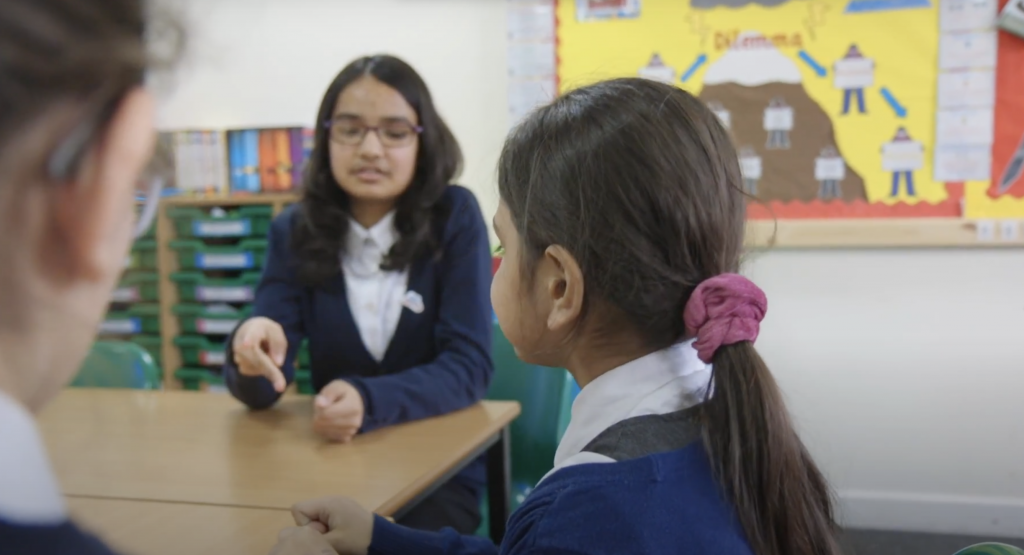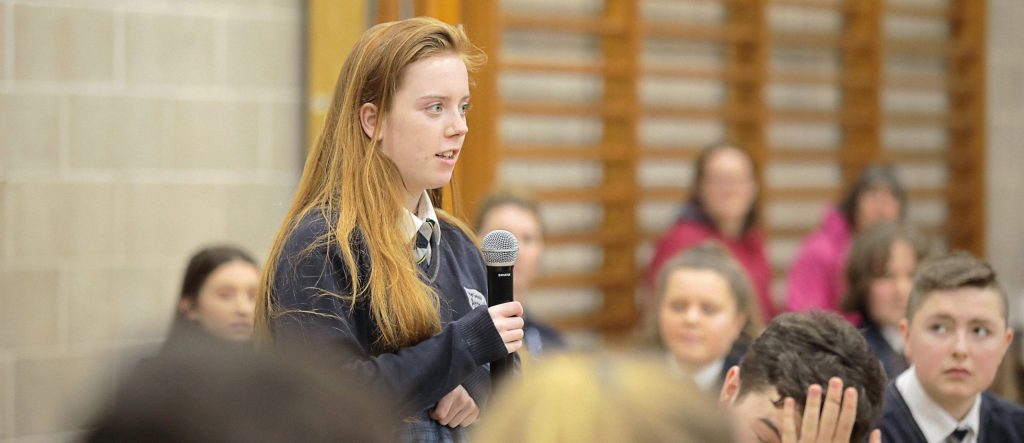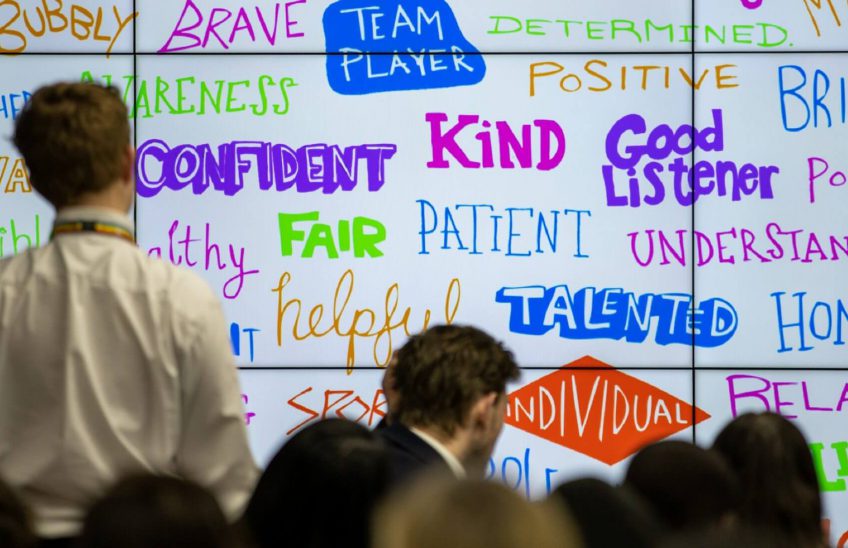This article first appeared in SecEd on 8th March 2021 written by our very own Graham Moore
What can be said about the past 12 months that has not already been said? How will we remember this moment in time, this period in history, or as Stephen Tierney calls it in his book Educating with Purpose, the Great Pause?
During the past 12 months, people have lost their businesses, their livelihoods, their purpose. People have lived in fear for their lives, or those of vulnerable loved ones. Hope as, at time, been hard to come by.
As the vaccination programme gives us hope for a return to normality, our society is now at a crossroads and we face some crucial decisions, not least about how we support the most vulnerable in our country and what the future workplace will look like post-Covid.
Catch-up at all costs
In all this chaos, our education secretary is primarily concerned with how our children are going to “catch-up” on academic studies, “catch-up” on their lost year, “catch-up” on the progress they have not made…
With the use of this kind of language, I fear that our political leaders have created an agenda that could be as damaging and disastrous for young people as the pandemic itself.
All of us – policy-makers, school leaders, teachers, parents – need to stop and ask ourselves: “What do our young people really need right now?” We might even step outside of the Westminster bubble and ask the young people themselves.
So, what are my solutions? What do I believe is needed right now? I have five recommendations that I think will really help our students not only to recover, but to make sense of this extraordinary chapter in their lives. These five approaches will help them to build a sense of hope and purpose for the future – and they will not cost schools a penny…

First: Stop telling young people what they need
One of the biggest and most common mistakes we make in society, education and even in our own families is assuming that we know what our youngsters need.
Let’s face it, our entire education system is based on adults telling young people what, when and how they need to learn. As a father of four grown up children, I have on multiple occasions given my kids advice only to be told: “You don’t understand Dad, that’s not what I need to hear right now.”
Throughout this pandemic, I suspect that we as adults have underestimated the thoughts, feelings and conclusions that our young people have faced.
Many assumptions have been made and many suggestions put forward about what young people need and what is right for them. Has anyone stopped to ask them? How do they feel? What do they need?
I have. Their responses are varied, diverse and individual. That said, common themes include wanting to see their friends, do normal things like shopping and cinema, play sport, go to places they miss, reunite properly with family…
Only when specifically asked about school do they mention studies and, even then, this ranks way below seeing friends and “having a laugh”; many primary-age children express missing their teachers and are looking forward to seeing their classrooms again.
“Catching up” on missed school work is not the biggest priority for many young people.
By asking children what they want and listening – really listening – to their responses, we could make informed decisions about how best to respond.
One thing is sure: if we do not meet these “pastoral” needs first, students will not be in the right frame of mind to focus on recovering their academic learning anytime soon.
Second: Intentionally provide opportunities for classes to sit and discuss their feelings
After the greatest interruption to education, why would we bring an entire school population back without deliberately and intentionally creating and providing some form of reintegration experience?
Teaching and support staff are extremely creative and know their students inside out – could they create their own “back to school” programme?
These programmes, which could run between now and the end of the academic year, can include all manner of workshops to guide and support students through reflecting on their thoughts and experiences of lockdown, while simultaneously providing them with tools they will need to rebuild their lives and futures.
This intentional and deliberate action would send a key message to students – that we value your happiness, wellbeing and mental health more than anything else.
Third: Provide curriculum time for interventions such as meditation, physical exercise, outdoor activity and connection with nature
Most schools run after-school clubs and pre-pandemic a small but increasing number were running programmes to introduce activities such as mindfulness, yoga and meditation. Having practised daily meditation for more than 30 years, I can testify personally for the influence it has had on me.
How hard would it be to provide these activities to every student during curriculum time for the next few months to help them both readjust and prepare for their future?
Staff could join in to demonstrate their need and desire to grow as human beings while also modelling positive behaviours. Insightful, brave schools which provide these kinds of reflective and calming activities will reap the rewards of a new calmer, healthier school culture.
Another silver lining of the pandemic has been the proliferation of young people heading outdoors to run, cycle and walk among many other forms of exercise. So why stop now?
Young people who have become accustomed to spending one hour or more a day doing some form of exercise in fresh air will once again be limited to one or two indoor PE lessons a week. Is this sensible right now, given the benefits of exercise for our mental wellbeing?
PE staff in my experience are great organisers and strict task-masters and could easily provide mass aerobic sessions or a big game of rounders to bring students back together and put a smile on everyone’s faces.

Fourth: Life-map development
Very little time in school is spent really helping students to discover who they are and helping them to understand just who they could be.
On their 11-year journey through school, our young people very rarely, if ever, get asked: “Who are you?” They very rarely, if ever, get asked to storyboard their ideal future beyond school. We very rarely dedicate any time (outside perhaps of PSHE or careers activities) to ask the students to reflect on their aspirations, goals and dreams.
Almost every headteacher I know has some form of coach, mentor or guide who supports them through their career. Now more than ever, young people need the same coaching and mentoring to look after and nurture them throughout the pandemic and into their future as they attempt to rebuild their hope and purpose.
Once again, what a powerful message we would give our children if we said “we care about your life and future”.
Fifth: The purpose of education
The main aim of our education system is to ensure that students leave school with a satisfactory set of qualifications. A tremendous amount of time, energy and money is dedicated to this, but there is a simple truth: academic qualifications never got anyone a job, they just get them an interview.
Successful interview candidates are always the ones who effectively demonstrate that they have the correct qualities, attributes, attitudes, and skills for the job.
I have worked with more than 20,000 school staff during the past 20 years and one of my opening challenges has always been to ask them to write down the purpose of education. I can count on one hand the number of times a teacher has cited anything to do with exam results.
Most staff in schools see the bigger picture and are there to help young people get ready for life; exams often get in the way of this development.
If we are to truly “build back better”, this is a wonderful opportunity to redefine the purpose of education; to reimagine our curricula and redesign the outcomes. We could create a new set of benchmarks to demonstrate what have traditionally been called soft skills, but actually are vital life-skills. We could reassure the young people who might have lost hope in this pandemic by instilling these skills alongside the academic recovery work.
Of course, schools will still have to prepare children for examinations for the foreseeable future, but that doesn’t have to stop us. We could do much worse right now than create a new skills-led curriculum that centres on the holistic development of human beings.
Conclusion
In the post-Covid world we are heading towards, we will get one chance to “build back better” and putting the emphasis of recovery on academic “catch-up” at all costs will not help our youth to regain their sense of hope.
I believe, with all my heart, that putting human beings at the centre of everything schools do will help our children to settle and readjust following months of uncertainty, while creating vastly improved school cultures.
Now that really would be building back better.















